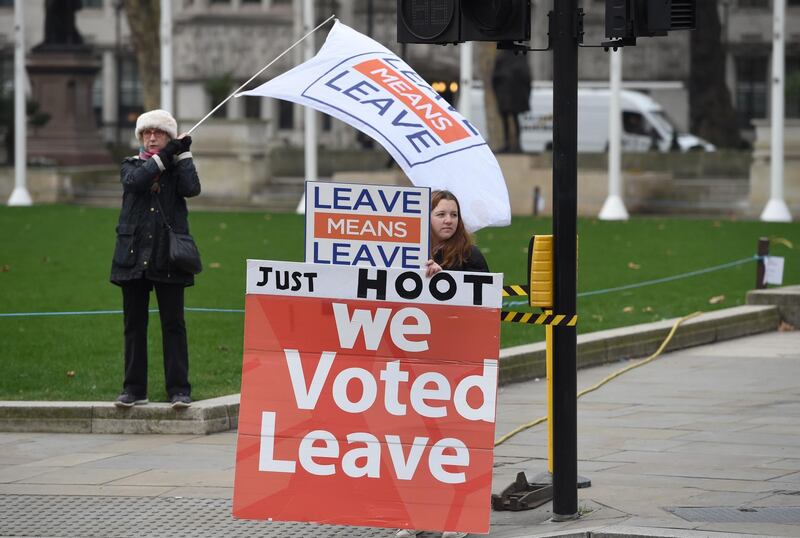Up to 4,000 civil servants in five of Britain’s government have been asked to set aside their daily tasks to work on the preparations for a no-deal Brexit, a scenario the current parliamentary arithmetic is making increasingly likely.
Ministers were being asked to take up their new roles within weeks for a period of at least six months in order to ensure that basic services will not be discontinued in the event of a hard Brexit, local media reported.
Five ministers in particular – defence, justice, education, international development and work and pensions – were found to have spare capacity. The selected 4,000 civil servants are set to constitute a cross-departmental border delivery group.
Separately, the civil service in Norther Ireland was recruiting volunteers to oversee fuel distributions in case of emergency.
A no-deal scenario, however, is no longer the only alternative, according to British officials. Speaking to the BBC Today program on Friday, Britain’s foreign secretary Jeremy Hunt said the chances of Brexit being halted altogether were going up. “I think after this week things have changed”, he said. “Up until now I think people have quite rightly been worrying about the prospects of a no deal. Now there is another possibility coming into sight, which is actually no Brexit. And why is that? We have a government that is committed to delivering Brexit. But it doesn’t’ have a majority.”
Mr Hunt said that if the current deal were to be rejected, what Britain may end up with is “not a different type of Brexit but a Brexit paralysis. And Brexit paralysis ultimately could lead to no Brexit.”
_____________________
Read more:
[ Former security chiefs warn against May’s withdrawal deal ]
Brexit on the brink as Theresa May resists demand for plan B
Jeremy Corbyn to set out Labour’s policy on Brexit
_____________________
The foreign minister said this scenario would be a “breach of trust” towards British voters as well as a blow to Britain’s reputation abroad.
This possibility had been already brought up by prime minister Theresa May when she listed the possible outcomes after a five-hours long cabinet meeting that ended with the approval of her Brexit plan.
However, Mrs May also seemed to dismiss the possibility when she repeatedly declared that Britain will leave the EU in March under whatever circumstances.
Growth in Britain has entered a spell of weak growth, with forecasts predicting the economy will expand by 1.1 per cent – the lowest rate since the 2009 recession.







